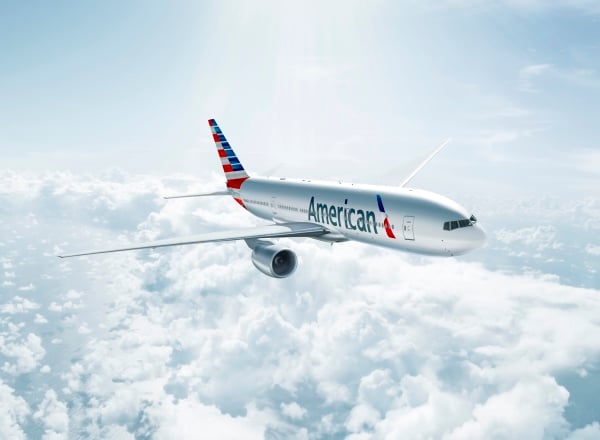Services
Can Airline Stocks Keep Investor Interest After Earnings?
Published:
Last Updated:
Investors like the airlines. First-quarter results, for the most part, were strong, and the stocks are mostly higher for the year. All are up quite a bit from lows seen in early 2012. Source: courtesy of American Airlines
Source: courtesy of American Airlines
The industry is benefiting from three forces: less competition thanks to mergers in the past few years, fewer airplanes in the sky and, because of an improving economy, plenty of passenger demand. But they struggled in the first quarter as a difficult winter disrupted airline traffic nationwide. They face headwinds from higher fuel prices and a sputtering economy.
Perhaps the biggest challenge is stock prices that may have moved too far too fast. The NYSE Airline Index is up 86% from its 2013 low. It has climbed 15.8% this year, compared with just 2.6% for the Standard & Poor’s 500 Index.
Still, the second and third quarters are historically strong quarters for airlines.
ALSO READ: America’s Best and Worst Airlines
The big winner so far is Delta Air Lines Inc. (NYSE: DAL), shares of which are up 34% this year and 218% from their 2012 low. The company, which absorbed Northwest Airlines, said Wednesday it earned $0.33 a share, excluding one-time charges, in the first quarter. That was up from $0.01 a year ago. Revenue was up 5.6% to $9.99 billion and beat the consensus estimate of $9.47 billion. The results came in spite of 17,000 winter-related flight cancellations in the first quarter. Passenger revenue per available seat mile (PRASM), a key performance metric, rose 3% to $0.1424. Shares were down nearly 1% on Thursday to $36.73. They are off 2% from their 52-week high of $37.47.
Southwest Airlines Co. (NYSE: LUV) said Thursday it earned $0.22 a share in the quarter, up from $0.08 a year ago and ahead of the Street’s estimate of $0.17. Revenue of $4.17 billion was in line with estimates and up 2% from a year ago. PRASM rose 3.5% to $0.129. Southwest cancelled more than 7,500 flights because of weather during the period. The company expects to see $0.50 a share in the second quarter, up from $0.47 a year ag0. Revenue may rise 3.9% to $4.82 billion. Shares rose 0.8% to $24.27 Thursday, and they are up nearly 29% this year and 134% from their 2013 low of $10.36. Note that shares reached a 52-week high of $24.45 on Thursday before falling back.
JetBlue Airways Corp. (NASDAQ: JBLU) said Thursday it had cancelled 4,100 flights because of weather, which cut revenue in the first quarter by $35 million. The company saw earnings fall to $0.01 a share from $0.05 a year ago. Revenue was up 3.9% to $1.35 billion. PRASM rose 0.9% to $0.118. Shares fell 2.6% Thursday to $8.37. They are down 2% for the year and are off 11.4% since hitting a 52-week high of $9.45. They are up, however, about 47% from their 2012 low of $5.70.
United Continental Holdings Inc. (NYSE: UAL), parent of United Airlines and Continental Airlines, was Thursday’s disappointment. The company lost $1.33 a share, excluding one-time charges. Wall Street had expected a per-share loss of $1.35. Revenue was flat at $8.7 billion. PRASM fell 1.5% to $0.1174. The company said the winter weather cut revenue by $200 million. It also struggled with competition on flights to China and experienced continued problems merging the United and Continental systems. Shares fell 9.8% to $41.53 and are off 15.6% from their 52-week high of $49.20. Still, the shares are up 9.8% this year and 75% from their 2013 low.
ALSO READ: Spirit Airlines Receives Lowest Scores Among Consumers
Lastly, American Airlines Group Inc. (NASDAQ: AAL), the parent of American Airlines and U.S. Airways, earned $402 million after one-time charges. The combined revenue of the carriers, which merged in December, was $9.95 billion. That was up from the $9.47 billion in revenue the carries generated a year ago. PRASM rose 3.8% to $12.77. Shares rose 0.5% to $37.26. They are up 47.5% this year but off 6.6% from their peak of $39.88.
Take the quiz below to get matched with a financial advisor today.
Each advisor has been vetted by SmartAsset and is held to a fiduciary standard to act in your best interests.
Here’s how it works:
1. Answer SmartAsset advisor match quiz
2. Review your pre-screened matches at your leisure. Check out the
advisors’ profiles.
3. Speak with advisors at no cost to you. Have an introductory call on the phone or introduction in person and choose whom to work with in the future
Take the retirement quiz right here.
Thank you for reading! Have some feedback for us?
Contact the 24/7 Wall St. editorial team.